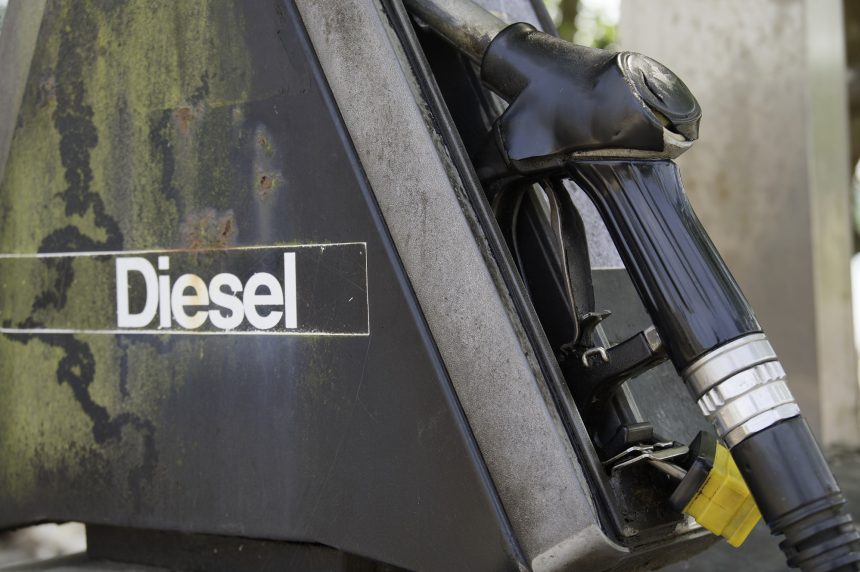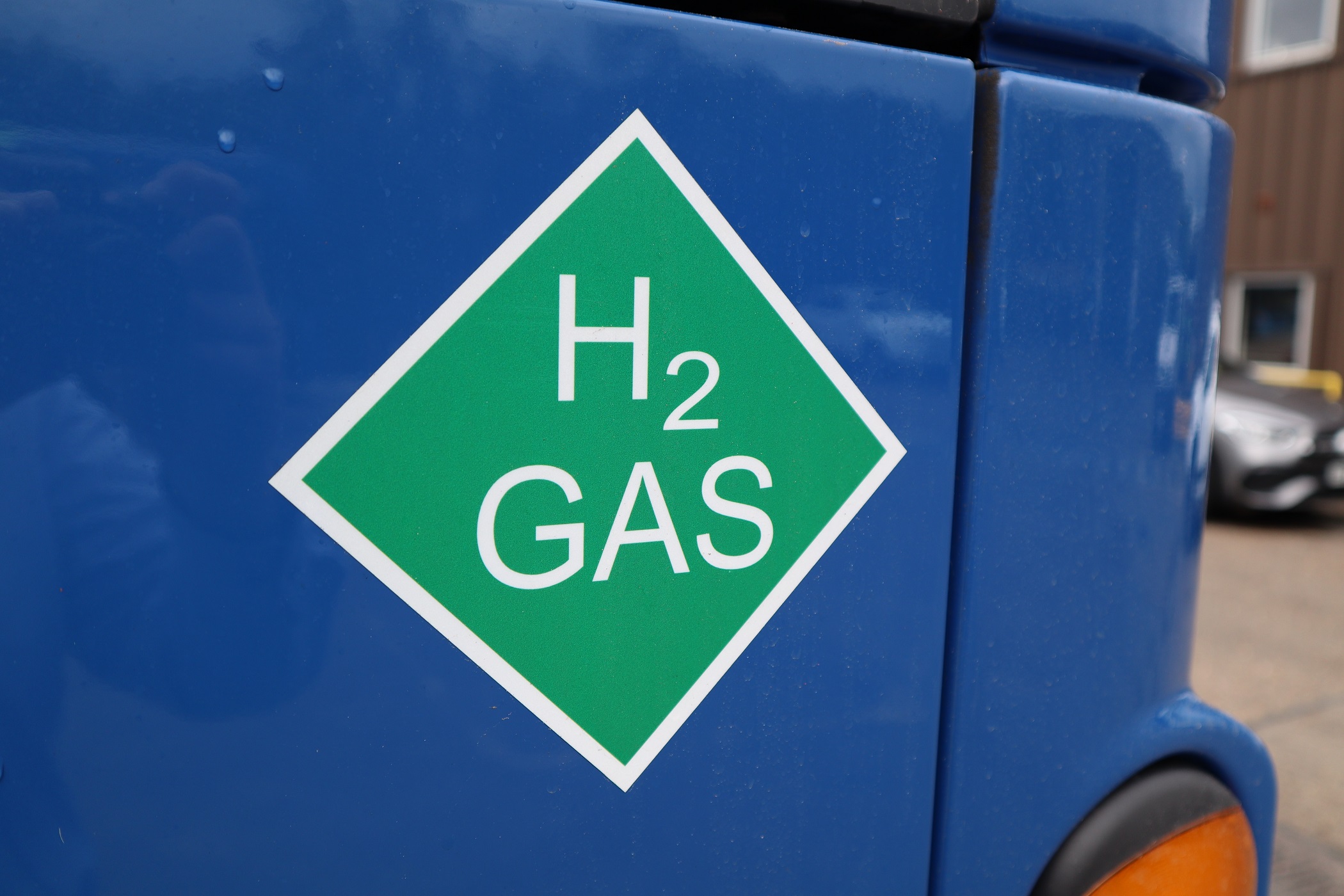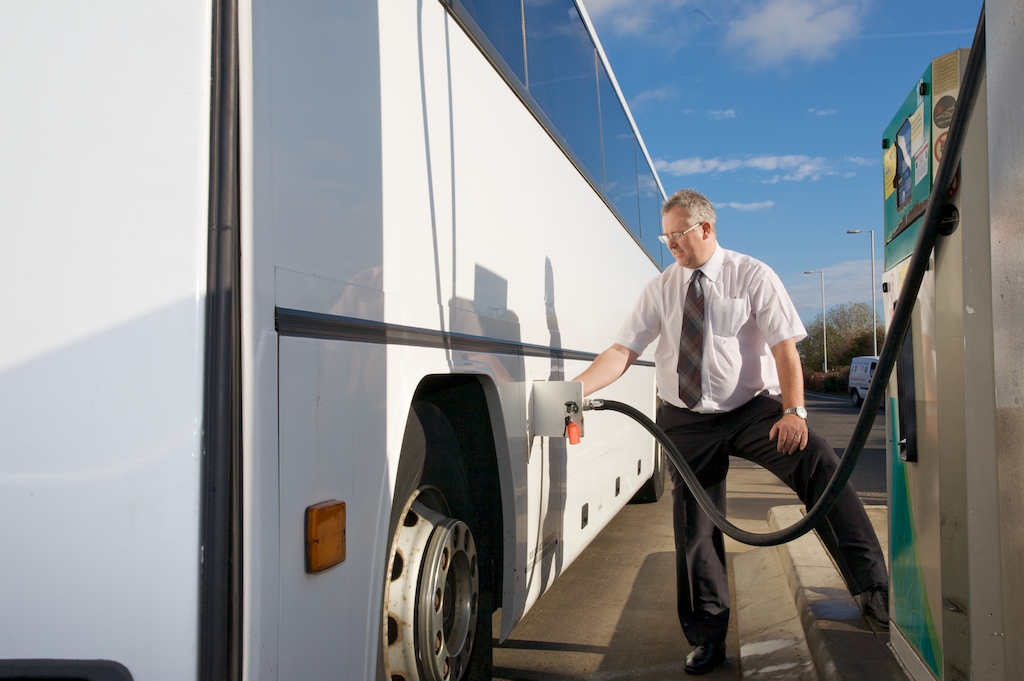Experts agree that diesel as a fuel source will still be in use for many more decades. What will that look like beyond the phase-out dates for ICE vehicles?
Last month, former Epsom Coaches Managing Director Steve Whiteway commented that diesel would likely be relied upon as a fuel source in coaches as late as 2040, calling the transition to alternatives in fuel a “problem for the next generation”.
But will diesel as a fuel source still be practical, if the phase-out of new petrol and diesel cars, vans and buses comes in 2035?
Not long before Steve’s comments, Chris Owens, Managing Director of Llandudno-based Alpine Travel and a member of the Confederation of Passenger Transport’s Zero Emission Coach Taskforce (ZECT), had cautioned against reliance on diesel as the next two decades progress. Part of that was a warning that supply reductions could see a repurposing of fuel stations.
Though the Department for Transport claims that the phase-out of new diesel light commercial vehicles will be 2035 (with buses captured and well-funded in that transition), and the phase-out in heavy commercial is expected to be 2040, Chris points out that a question mark remains over which bracket coaches will fit into.
“Coach has a difficult journey,” he says, highlighting common concerns such as reliance on the HGV sector for research and development. “Battery-electric will solve part of the problem, but for touring coaches, what we do isn’t going to be transferrable in a new format, or it is going to have to be an alternative fuel — whether that is synthetic fuel, hydrogen fuel cell-electric or hydrogen combustion. I don’t think anybody considers that electric is going to replace all coach operations unless infrastructure changes enormously.”
Early adoption and infrastructure
Chris’s concerns over longevity of diesel centre around how current operating models will fit into the next generation of technology. Early adopters — whether by choice, or mandate — face large investment, with the added competition of operators with older vehicles being able to offer similar services at a lower price. There therefore needs to be financial incentive for a bridging period, circa 2035-2040.
The other problem is a transition lag between modes, which could result in a tiered approach to vehicle support on the road network.
“By the time we get to the heavy commercial vehicle phase-out date for diesel, the newest cars will have been fossil-fuel free for 10 years,” Chris explains. “By that point, petrol stations — which are built to support the majority of road users, i.e. cars — will have been converted to those new fuel sources. We will potentially be looking at a time when investment in fossil fuel infrastructure is gone.”
That view isn’t without precedent. In late November came an announcement by Petroineos that Grangemouth oil refinery would cease operations as soon as 2025.
For Chris, that early breakdown and dismantling of fossil fuel infrastructure means the writing is already on the wall. Now is the time for coach operators to consider how their business models look in that world. “It might be that we end up with more central fuelling hubs, or commercial filling stations. By that point, even delivery vans will be zero-emission. Only heavy duty vehicles are likely to be fossil-fuel powered. I do think we are going to see a shortage of diesel while people are still buying coaches in 2028. The availability and cost of diesel will make combustion engine coaches more difficult to operate than alternatives. It will bring the use of diesel to an early demise – long before the usefulness of the fuel itself has expired.”
Diesel flexible, but legislation drives change
For Chris, that early breakdown and dismantling of fossil fuel infrastructure means the writing is already on the wall. Now is the time for coach operators to consider how their business models look in that world. “It might be that we end up with more central fuelling hubs, or commercial filling stations. By that point, even delivery vans will be zero-emission. Only heavy duty vehicles are likely to be fossil-fuel powered. I do think we are going to see a shortage of diesel while people are still buying coaches in 2028. The availability and cost of diesel will make combustion engine coaches more difficult to operate than alternatives. It will bring the use of diesel to an early demise – long before the usefulness of the fuel itself has expired.”
Concerns about zero-emission vehicles have always been about range, passenger capacity, luggage capacity. Three-axle addresses or reassures customers that we have positive answers to all those three questions,” he says. “The TCe12 has been very popular since we introduced it. We have over 50 vehicles in service now. But the GTe14 takes it into other segments of operation for the UK.”
Ian says the length of time in which diesel coach products remain in Pelican Yutong’s manufacturing portfolio will depend upon legislation. ”There will still be customers who will want to keep diesel for as long as they possibly can. We will therefore still be looking at supplying diesel for the foreseeable future.”
That desire among operators to keep diesel as long as possible comes down to the wide vehicle portfolio still available in the market, such as axle variations, a UK-centric application for electric due to infrastructure requirements, and the range demands.
If legislation forbids new diesel vehicle purchases in 2035, Ian expects that to be the peak of demand for such vehicles. “However, we also have something that people keep forgetting to mention. The EU legislation on emissions and potentially Euro 7. The question will be, depending on the timing of Euro 7, whether or not engine and vehicle manufacturers can afford to go to Euro 7 knowing that zero-emission will be coming.
“There is also the element of quotas and how many zero-emission vehicles must be built on the car and truck side. There is a question on whether that will force the uptake of zero-emission vehicles as manufacturers invest in diesel technology.”
But Ian says the benefits of transition to zero-emission coaches and buses have already been proven. Those benefits will continue to accrue and sway opinion towards such vehicles as time goes by.
From the funder’s perspective
From a lending perspective, Dawsongroup Finance was on hand to offer insight on how changes in environmental regulations, the risks associated with financing diesel coaches and buses, and the uncertainty around the future of diesel given shifts towards cleaner technologies may impact its own business strategy.
“We do have to think about how long we have before changes in technology or legislation mean these vehicles are effectively going to become redundant,” says Commercial Manager Matt Bull, who suggests the shift will be regional. “For example, when they can’t access certain areas due to… emission control zones. That very much depends on location. If we’re funding a diesel bus in Newquay for example, we would anticipate a much longer time frame than if we’re funding the same bus in one of the major cities such as London, York or Manchester.
“This is among the considerations when you’re setting out the length of the deal, and when you’re considering residual value risk as well, which will have an implication for the customer in terms of their level of monthly payments.”
Matt expects shorter time frames for finance agreements for combustion engine vehicles as the outlook changes. But he says it remains a nuanced and individualised decision. “As a funder, more than anything we need to make sure we understand the individual business even more. We would ask questions to make sure, for example, that a brand-new combustion engine is right for the business, and if it has explored other options. We need to ensure that each customer understands what it wants out of its fleet and the market it is operating in.”
Demand for diesel will remain especially stable abroad, Matt adds — so Dawsongroup’s knowledge and data will still be drawn upon for making decisions around vehicle conditions and resale values, and on where diesel vehicles will still continue to be required and useful.
Electric and alternate fuel vehicles remain a great unknown, though. “We have limited data and limited businesses using electric vehicles to be able to provide that data. We don’t know how long electric drivetrains will last, and what happens beyond that point – can they be regenerated, for example. There is much more to be thought about when funding into those markets, and far less certainty when it comes to those factors which impact the terms of a deal.
“Naturally, lenders mitigate their risks with shorter terms to protect their capital investment as they’re taking bigger risks with residual value and need to be able to protect themselves against any changes to the technology and the conditions.
“We are working hard, drawing knowledge from across our sister companies in Dawsongroup, including Dawsongroup Bus and Coach, and working with manufacturers and suppliers. We’re keeping our ear to the ground to stay one step ahead of the technology to equip ourselves with the kind of insight we need to offer competitive deals. However, in terms of comparison between the two areas, it’s still a stable market versus an unknown market.”
Dawsongroup is clear that it wants to fund green technologies and sustainable assets. It is working hard to resource and fund them. “But ultimately, we want to work with our customers, rather than dictate to them,” adds Matt. “We will continue to work closely with them as they choose the right asset for their business, and providing asset finance solutions that serve the demands of their business in the best possible way.”
Work continues to understand what the future of the market will look like. Matt says it is clear that electric vehicles “will become the norm”, but unless there is shift in the legislative approach, no cliff edge is expected — rather, it will be a steady transition, with a lengthy period when both diesel coaches and buses, and electrically propelled and alternatives fuelled vehicles have their place and purpose.
“It really is too early to predict the timeline, but we do expect it to look different in different geographical locations,” Matt says. “Coach and bus companies in Devon and Cornwall will likely be running diesel vehicles a lot longer than will their counterparts in major cities like York, London and Manchester, and that will have implications for the terms of deals offered to businesses in these areas.
“The government has set out some waypoints – around the phasing out of electric cars for example, and we will be guided by those, as all businesses will. Ultimately, as funders, we want to make sure we remain flexible and responsive to changes in technology and legislation at a macro level, while also keeping in touch with businesses on the ground and understanding where their key assets, like coaches and buses, are being used and in what way.”




























